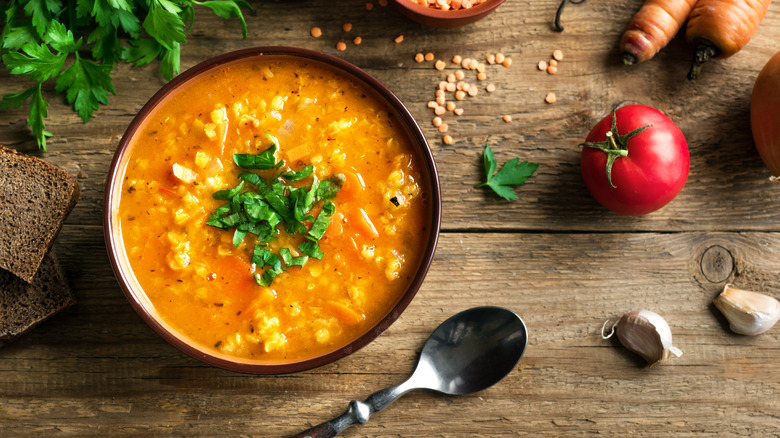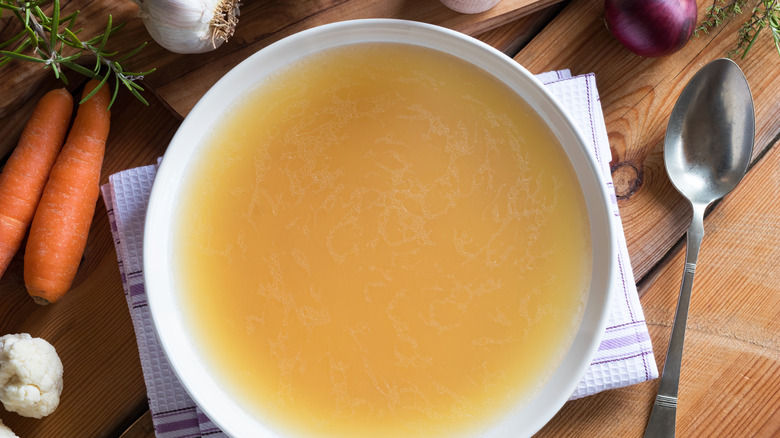The Broth Substitution Rule That Could Ruin Your Soup
You're craving a steaming bowl of homemade soup, so you get out all your ingredients and begin sautéing your onions and layering your flavors, dreaming of the delectable dish that awaits. However, as you advance in the cooking process, you realize you're missing one crucial component — broth. Many home cooks have been in this situation, and wondered if they could simply add in an equal measure of water to finish the recipe and set it simmering for a while so the flavors meld. After all, many soups have a ton of ingredients that deliver their own burst of flavor, so it's probably fine, right?
Well, the answer isn't exactly black and white. It depends both on what you're making and what type of broth you're missing. Bon Appétit's senior food editor Andy Baraghani outlined some parameters for when you can confidently substitute water for broth, and it primarily depends on where the flavor is coming from in your dish.
For example, in a carnivorous creation that receives a ton of flavor from meat, or a vegetarian dish that has plenty of aromatics already, you could replace the called-for broth with water without impacting the dish too much. In dishes that get a large dose of their flavor from the broth itself, such as soups, the broth is a crucial component, and substituting it with water will often make your dish taste, well, watery (via Bon Appétit).
Finding a better substitute without running to the grocery store
Putting your dish on hold to make a trip to the grocery store isn't ideal. Luckily, there are a few options you can consider. One way to ensure you always have the option of broth is to simply keep bouillon cubes or powder in your pantry; with them, you can whip up a batch of broth at a moment's notice by simply combining the mixture with the necessary amount of water (via LEAFtv).
If you're more inclined to create a super-quick broth based on what you have in your cupboards and fridge, Kitchn offers a quick ten-minute vegetable stock recipe that involves simmering some peppercorns, bay leaves, an onion, garlic, and a few sprigs of fresh herbs (or a pinch of dried herbs). Yes, it will mean dirtying another pot, but you'll have the broth ready to add to your soup in no time, and it will definitely be more flavor-packed than simply water.
Finally, you can also make broth substitutions in a pinch, if you have a type of broth on hand that's different than the type your recipe calls for. However, be aware of what you're substituting — according to The Spruce Eats, it's easier to swap vegetable broth in a dish without changing the flavor profile too much than it is to use beef broth in a recipe that calls for chicken broth, or chicken broth in a recipe that calls for beef.

